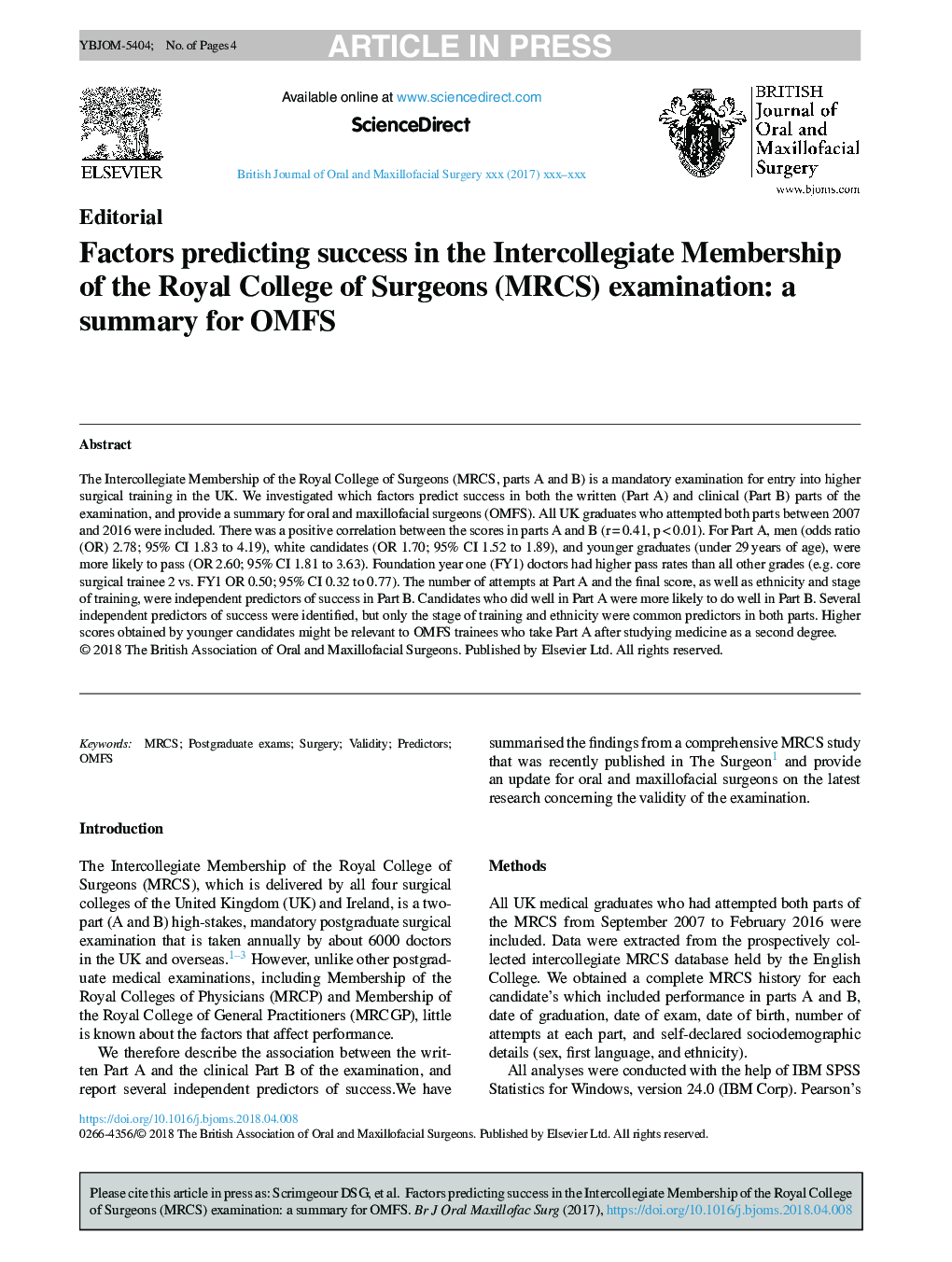| Article ID | Journal | Published Year | Pages | File Type |
|---|---|---|---|---|
| 8696662 | British Journal of Oral and Maxillofacial Surgery | 2018 | 4 Pages |
Abstract
The Intercollegiate Membership of the Royal College of Surgeons (MRCS, parts A and B) is a mandatory examination for entry into higher surgical training in the UK. We investigated which factors predict success in both the written (Part A) and clinical (Part B) parts of the examination, and provide a summary for oral and maxillofacial surgeons (OMFS). All UK graduates who attempted both parts between 2007 and 2016 were included. There was a positive correlation between the scores in parts A and B (r = 0.41, p < 0.01). For Part A, men (odds ratio (OR) 2.78; 95% CI 1.83 to 4.19), white candidates (OR 1.70; 95% CI 1.52 to 1.89), and younger graduates (under 29 years of age), were more likely to pass (OR 2.60; 95% CI 1.81 to 3.63). Foundation year one (FY1) doctors had higher pass rates than all other grades (e.g. core surgical trainee 2 compared with FY1 OR 0.50; 95% CI 0.32 to 0.77). The number of attempts at Part A and the final score, as well as ethnicity and stage of training, were independent predictors of success in Part B. Candidates who did well in Part A were more likely to do well in Part B. Several independent predictors of success were identified, but only the stage of training and ethnicity were common predictors in both parts. Higher scores obtained by younger candidates might be relevant to OMFS trainees who take Part A after studying medicine as a second degree.
Keywords
Related Topics
Health Sciences
Medicine and Dentistry
Dentistry, Oral Surgery and Medicine
Authors
D.S.G. Scrimgeour, J. Cleland, A.J. Lee, P.A. Brennan,
